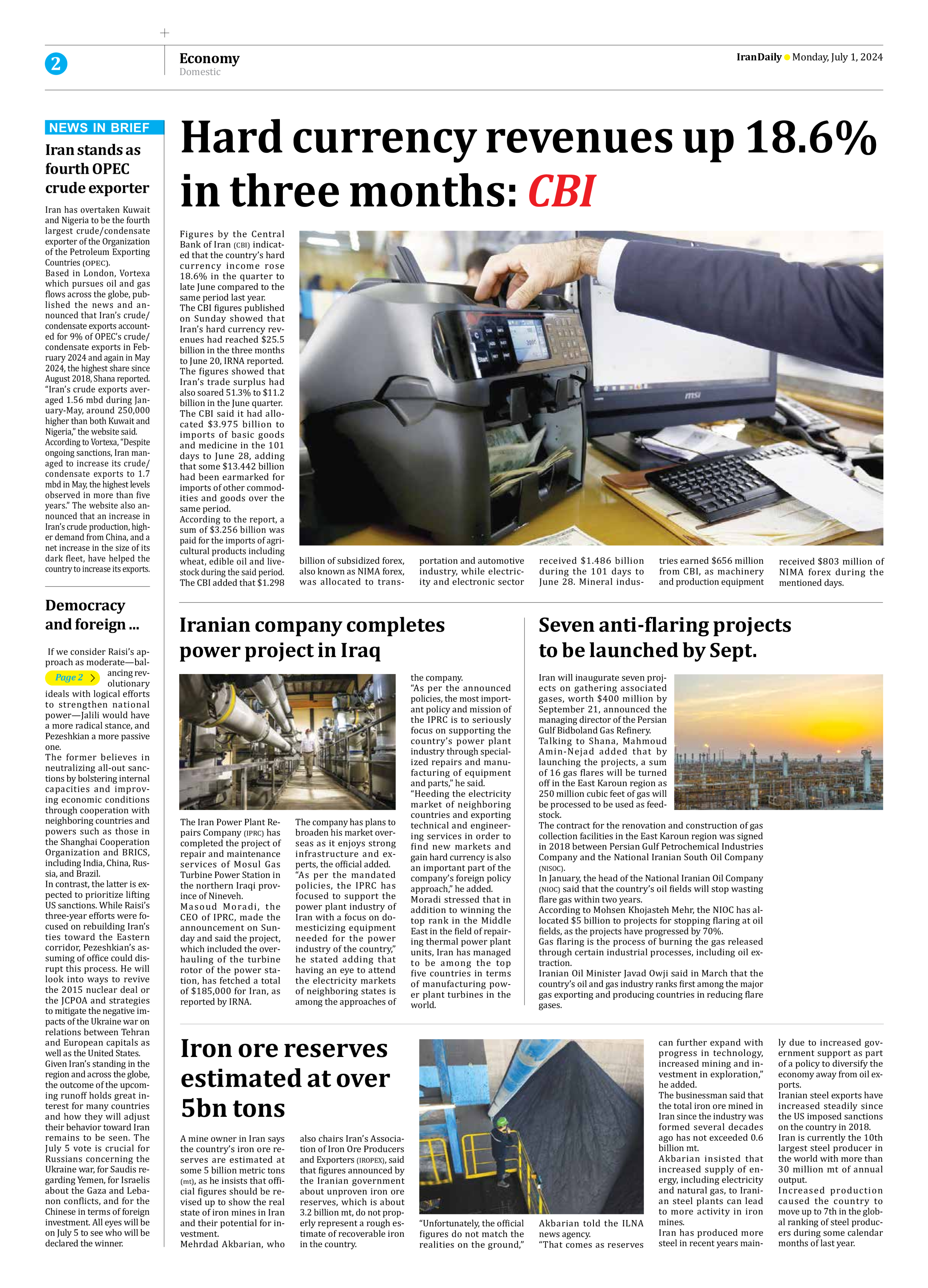
Democracy and foreign ...
Page 2
If we consider Raisi’s approach as moderate—balancing revolutionary ideals with logical efforts to strengthen national power—Jalili would have a more radical stance, and Pezeshkian a more passive one.
The former believes in neutralizing all-out sanctions by bolstering internal capacities and improving economic conditions through cooperation with neighboring countries and powers such as those in the Shanghai Cooperation Organization and BRICS, including India, China, Russia, and Brazil.
In contrast, the latter is expected to prioritize lifting US sanctions. While Raisi’s three-year efforts were focused on rebuilding Iran’s ties toward the Eastern corridor, Pezeshkian’s assuming of office could disrupt this process. He will look into ways to revive the 2015 nuclear deal or the JCPOA and strategies to mitigate the negative impacts of the Ukraine war on relations between Tehran and European capitals as well as the United States.
Given Iran’s standing in the region and across the globe, the outcome of the upcoming runoff holds great interest for many countries and how they will adjust their behavior toward Iran remains to be seen. The July 5 vote is crucial for Russians concerning the Ukraine war, for Saudis regarding Yemen, for Israelis about the Gaza and Lebanon conflicts, and for the Chinese in terms of foreign investment. All eyes will be on July 5 to see who will be declared the winner.







